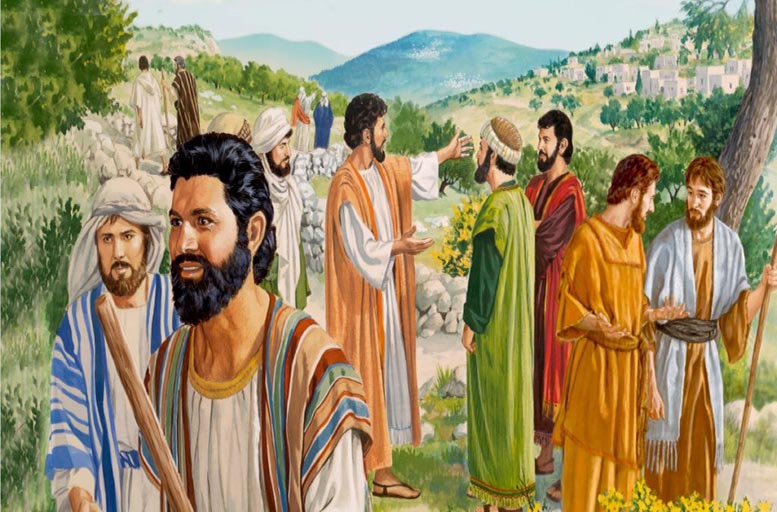Reflection
7th Sunday in Ordinary Time | Year A
Matthew 5:38-48
Jesus said to his disciples: ‘You have learnt how it was said: Eye for eye and tooth for tooth. But I say this to you: offer the wicked man no resistance. On the contrary, if anyone hits y ou on the right cheek, offer him the other as well; if a man takes you to law and would have your tunic, let him have your cloak as well. And if anyone orders you to go one mile, go two miles with him. Give to anyone who asks, and if anyone wants to borrow, do not turn away.
You have learnt how it was said: You must love your neighbour and hate your enemy. But I say this to you: love your enemies and pray for those who persecute you; in this way you will be sons of your Father in heaven, for he causes his sun to rise on bad men as well as good, and his rain falls on honest and dishonest men alike. For if you love those who love you, what right have you to claim any credit? Even the tax collectors do as much, do they not? And if you save your greetings for your brothers, are you doing anything exceptional? Even the pagans do as much, do they not? You must therefore be perfect just as your heavenly Father is perfect.’
Reflection
When people involved in conflict respond to an act of aggression with a similar level of aggression, the conflict is perpetuated. In some long-running conflicts, for example between neighbours or in families, the original act which started the conflict is long forgotten as the conflict becomes an end in itself.
Jesus offers an approach to aggression that implicitly involves forgiving the offender, and showing that forgiveness by offering more than was being taken.
When we have been hurt or wronged our first reaction can be to seek revenge in some way, and it is that response which perpetuates and entrenches the conflict. The generous response which Jesus advocates may not be the first response to come to mind in the heat of the moment or if we have been brooding on a wrong or hurt for a long time.
If we choose not to react immediately, a space is created for a response which is not rooted in revenge. Taking a short time to pray and reflect may more easily lead to a response which forgives and gifts something to the offender.
But what we do in the space is critical, because if the focus is on the wrong and the wrongdoer, the time can quickly become a period of brooding on the wrong done to us. The emotion generated by brooding may lead to an action which is explosive and damaging, and out of proportion to the offence.
Jesus calls us to forgiveness. Forgiveness does not prevent us from being assertive in explaining to the offender how we feel about their action, but it does involve letting go of the wrong done to us. Jesus’ proposal that we gift something to the offender is an act which will often be illuminating for the offender. It may lead to reconciliation which revenge will seldom do.
The List of Contributions Received by Caritas Vietnam
1. The list of 2024 contributions to the Caritas Vietnam general charity fund
2. The list of 2023 contributions to the Caritas Vietnam general charity fund
Latest project information
Copyright © 2018 by COMMISSION on CHARITY and SOCIAL ACTIONS - CARITAS VIETNAM
Total visits: 25,139,988
















